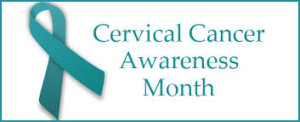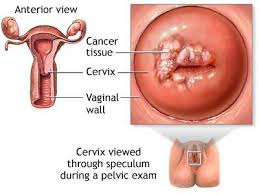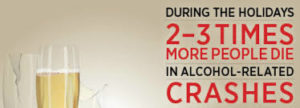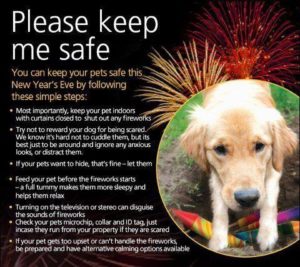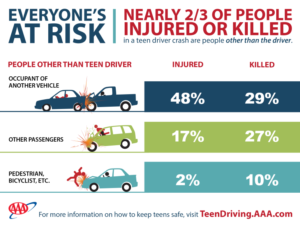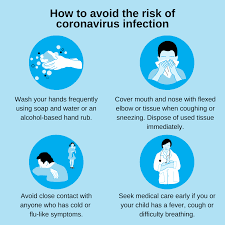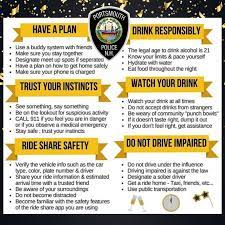Archives
Part I Cervical Cancer Awareness Month!
What is Cervical Health Awareness Month?
The United States Congress designated January as Cervical Health Awareness Month. During January, NCCC and its many local chapters across the country highlight issues related to cervical cancer, HPV disease and the importance of early detection. More than 40 years ago cervical cancer was a major cancer death risk for women. With the development of pap tests and in-depth recognition of warning signs those numbers are dropping significantly. We still aren’t completely safe however, as many thousands of women are still affected by cervical cancer every year.
Cervical Cancer is today’s issue. Through National Cervical Cancer Coalition with Dr. Warner Huh stated the following information about today’ topic:
Cervical cancer screening used to all be so simple==PREVENTION. Women were told just go for your annual Pap but now we have new tests to screen for cervical cancer, plus updated guidelines that—for most women—mean routine screening is done every few years rather than annually. Dr. Warner Huh of the University of Alabama, Birmingham sorts out the new landscape of Pap and HPV tests.
Human papillomavirus, or HPV, is a common sexually transmitted infection. So common that most (~80%) sexually active people will be infected with HPV at some point.
Cervical cancer begins in the cervix, the narrow organ at the bottom of the uterus that connects to the vagina. The cervix dilates during childbirth to allow for passage of a baby.
Picking up on risk factors and warning signs could save an individual from a lifetime of suffering. These include whether or not you’ve contracted HPV, if you eat a whole diet, have used birth control, have HIV, smoke cigarettes, or if it’s just in your genetics.
Here are some signs to watch out for:
Leg Pain – Some women exhibiting early stages of cervical cancer experience swelling and pain in the leg. When the cervix swells it can lead to an obstructed blood flow, which eventually causes the leg to swell and gives a sore, painful sensation. This may be a sign of early cervical cancer.
Vaginal discharge colored with blood – It’s normal for a woman to experience small amounts of clear discharge without color or odor. However, bloody, dark, or smelly discharge is usually a sign of infection. But sometimes, it’s a sign of cervical or endometrial cancer.
Abnormal vaginal bleeding – More than 90% of women diagnosed with endometrial cancer experience irregular bleeding. If you have already undergone menopause, any bleeding — spotting included — should be evaluated. Haven’t gone through menopause yet? See your doctor if you experience bleeding between periods, heavy bleeding or bleeding during sex.
Discomforting Urination – Keeping track of urination can help reveal the presence of cervical cancer in several ways. The most immediately obvious and prevalent symptom is discomfort while urinating. You may experience burning, stinging, or a tight sensation. This is another symptom to see a doctor about either way.
Irregular Urination – The appearance of the urine and urinary habits can also be symptoms of cervical cancer. If you notice strange changes in the frequency of your urine, loss of bladder control (incontinence) or a discoloration – especially with blood – seek the input of a medical professional.
Irregular Menstrual Cycles – There should be some level of consistency when it comes to monthly periods. If time, frequency, or any other changes disrupt the regular routine, it can also be a sign that you’re at a much higher risk for cancer and will require regular screenings.
Uncomfortable Sex – Painful intercourse, otherwise known as dyspareunia, is another discomforting side effect of cervical cancer. There are several possible reasons for this symptom to develop, as is the case with many of the symptoms on this list. This symptom is most commonly linked to conditions that require medical attention, however, so it shouldn’t be ignored.
Pain in the pelvis or abdominal area – Abdominal pain or discomfort — including gas, indigestion, pressure, bloating, and cramps — can signal ovarian cancer. And, constant pelvic pain or pressure can be a sign of endometrial cancer.
Back Pain – Back pain is common, affecting around 80 percent of the population, and it can happen for a wide variety of reasons, but if accompanied with other symptoms from the list, go for a medical check-up.
Stayed tune to Part II of Cervical Awareness Month tomorrow!
QUOTE FOR MONDAY:
QUOTE FOR THE WEEKEND:
“New Year’s Eve is an occasion to celebrate but be SAFE, and the last thing you want is a health and safety issues.
The holidays are always a busy time of the year in the Emergency Department,” says Northwestern Medicine Emergency Medicine Physician Steve R. Edelstein, MD, FACEP. “Conditions outside are precarious, and people are inclined to do things they normally wouldn’t do.”
No matter what plans you have in store, keep these tips in mind to help stay safe on New Year’s Eve.
Plan Accordingly If you’re going to a party or heading to a public event, make plans to arrive and leave with a group. A lot can happen on New Year’s Eve, and you want to ensure you, your friends and family are safe. Be sure to share your plans for the night and communicate your whereabouts if plans change.
To this end, pack a charger for your phone — a portable one may be especially helpful if you can’t find an outlet. Be aware of your surroundings; if you get separated from your group, you will want to know where you are, where you’re going and where you’re spending the night.
A filling dinner is another way to prepare for a long New Year’s Eve night. A wholesome dinner can not only help to absorb some of the alcohol you might indulge in, but it will also help you avoid nibbling on bar snacks.”
North Western Medicine (https://www.nm.org/healthbeat/healthy-tips/nye-safety-tips)
How to prepare safely New Years Eve in regards to drinking!
New Year’s season is one of the most fun and joyous holidays of the year. However, did you know that it is also one of the most dangerous holidays of the year?
It is estimated that during Christmas and New Year’s season, almost 95 million Americans will be on the road traveling to visit family and friends. People are much more likely to drink and drive around Jan. 1 than during any other major holiday of the year. Almost half of all car accidents on New Year’s Eve and New Year’s Day are due to drinking and driving.
When planning New Year’s Eve, the majority of people aim to celebrate as best they can and create one of the most memorable nights of the year. This often involves lots of alcohol. While it is hoped that most make responsible plans, many often do not. By not ensuring the safety of yourself and others around you during this night, you put yourself at a higher risk of the biggest dangers surrounding this holiday. Make sure you take the proper precautions to ensure your own safety as well as the safety of those around you. Here’s what you should know to avoid some of the biggest dangers and to stay safe and healthy during the New Year’s season:
Don’t drink and drive. Jan. 1 is the No. 1 day of the year with the highest percent of deaths related to alcohol, according to Insurance Institute for Highway Safety data. Between 2007 and 2011, alcohol accounted for 42 percent of all traffic deaths during the holiday. The more alcohol we consume, the slower the activity of the brain, heart and lungs. Before you celebrate, plan ahead. Aim to have a designated driver, or at least to take a cab or an Uber. Beware of other drunk drivers as they are probably more of a worry than yourself. And as always, wear your seatbelt!
If you will be drinking, pace yourself. What many people don’t realize when drinking is that our bodies absorb alcohol faster than we metabolize it. Therefore, the faster we drink, the more time the toxins from the alcohol spend in our bodies. As a result, we have harsher hangovers. Aim to drink no more than one drink per hour. Our livers metabolize about one alcoholic drink per hour. Know the difference in the amounts of the types of alcoholic drinks you are consuming, and that one beer does not equal six shots (12 oz. beer = 4-5 oz. of wine = 1.5 oz. of hard liquor). When drinking, sip slowly. Melted ice will dilute drink, so order drinks on-the-rocks. Add more club soda or tonic water to your drinks than alcohol.
Know what to mix, and what not to mix. Make sure to stick with the same drink all night. While it is a myth that mixing drinks causes greater intoxication, is remains true that it can often makes people sick and experience worse hangovers. To avoid this, choose light liquors such as vodka. Dark liquors have a higher concentration of toxins which make hangovers more severe. Instead of mixing with soda, use non-carbonated fruit juice or water instead. Carbonated mixers speed up the rate of absorption in the blood. Avoid diet mixers such as Diet Coke. With less sugar and calories, the alcohol goes directly into your bloodstream.
Alternate alcoholic drinks with water. Alcohol is a diuretic. This means that the more you drink, the more you have to urinate. More frequent urination leads to dehydration. Dehydration causes hangover symptoms such as headaches and dizziness. Aim to drink at least one large glass of water before and in between drinking alcoholic beverages. You should drink one glass of water for every alcoholic drink you consume. This will also keep you from getting too drunk.
Eat before you drink, and snack while you drink. Never drink on an empty stomach. Make sure to eat a full meal before drinking, and continue snacking while drinking. Eating while drinking will slow down the absorption of alcohol in the digestive track. This gives the alcohol more time to metabolize in the body. Aim to eat foods high in protein such as cheese, meat, and nuts. Fatty carbs work well too, however these are not as healthy.
Myth: Coffee sobers you up. Many people believe that coffee sobers you up in that the caffeine will speed up alcohol’s metabolism. As a result, many think it is helpful to drink a quick cup of coffee before hitting the road. However, this is a MYTH. Coffee may help you wake up a bit, but will not sober you up. The only cure for being drunk is time. If you need to get home and don’t have time to wait, get a ride from a sober driver or call a cab. You don’t want to risk getting into an accident and hurting yourself, or someone else.
QUOTE FOR FRIDAY:
“Fun games are a great way to get everyone mingling if you’re hosting a New Year’s Eve party. They’re also a fun way to spend time while waiting for the countdown to midnight. Funny stories and questions, heated races, and hunting for elusive holiday items will keep guests on their toes. Try Taboo Words. This game penalizes players who say the wrong words. Tell your guests that during the evening the words yes and no are off limits, as well as any words that contain those words, such as yessir, yesterday, snow, and casino. If someone says the taboo words while mingling with other guests, they get a sticker to wear. The guest with the least stickers at the end of the night is the winner. Try Adult Loaded Questions. If you’re unfamiliar with the board game Adult Loaded Questions , the idea is to test players on how well they know each other through suggestive and silly questions. An example includes “What would you be willing to do to get out of an expensive speeding ticket?” Feel free to DIY your own version with questions that pertain to the year’s events. If they succeed in making your guests blush, you’ve accomplished the goal of the game. There is active games like Name that tune; or Who am I?. How this game works is as guests arrive, have them write a name on a slip of paper and put it in a hat. Use the names of newsmakers from the past year, characters from recent shows or movies, celebrities in the spotlight, or people in the room. To play, divide partygoers into teams. A player from one team chooses a slip of paper from the hat and draws or acts out the famous person listed for their teammates to guess. Limit the amount of tries teams have to guess correctly. The team with the most correct guesses wins.”
Southern Living (https://www.southernliving.com/holidays-occasions/new-years/new-years-eve-party-games)
What to do on New Years Eve if you need ideas!
Ideas to do on New Years Eve if not going out the safest route to go!
1. Do a 1,000 piece puzzle.
2. Start binging a new TV show.
3. Host or go to a game night with less than 10 or better Zume it.
4. Make and then listen to a playlist of all of your favorite songs.
5. Or just do that thing where you play a song just before midnight, so that the best part plays right at 12 a.m. on Jan. 1.
6. Get Chinese or whatever takeout you want and watch Planet Earth 2 or another documentary or whatever you want to watch.
7. Take a nice, long bath with some salts or bubbles by yourself or with your significant other.
8. Although, if you want to start or read a book, now’s also a good time to do it. Don’t forget your favorite snack and drink as well.
9. Write letters to your friends and or family.
10. Treat it like you would the the last day of any other month, and do…whatever but be safe for you and others.
If you choose to take the safest route and celebrate solo or only with your own household, Good Housekeeping has loads of fun alternatives, such as making a New Year’s Brunch, decorating your space, scrapbooking your favorite memories from 2020, or getting dressed up as if you’re going to a party. Oprah Magazine suggests experimenting with fun cocktails, hosting a dinner party via Zoom, making a thoughtful resolutions list, or having a solo photoshoot with a DIY festive backdrop.
If all else fails, pour yourself a glass of champagne and watch a livestream of the ball dropping. We’re starting a brand new year here, and we want to ring it in with pride and positivity — not regrets.
In the end, we’d much rather have you nurse a hangover than a pandemic-level virus restarting (this is the flu and corona virus time again) or simply get sick before going back to work or not with bringing in the new year.
QUOTE FOR THURSDAY:
“On New Year’s Eve
Avoid leaving your car overnight
New Year’s Day is the most active holiday for car thefts. If you must leave your car somewhere overnight, be sure it’s locked and try to pick it up as early as possible the next day. If you do decide to drive home, let someone know when you leave and when you arrive safely at home.
Plan a ride in advance
On average, driving accidents rise during the holidays, so it’s crucial to have a safe ride on a night when so many people are out and about. Don’t assume you’ll be able to hail a cab. Know your options in advance and decide whether you’ll take public transportation, use a ridesharing service or carpool with your friends.
Plan for guests’ safety
If you’re hosting a party, you’ll want to be sure your guests get home safely. One option might be to hire a driver for the evening to provide people a way to get home. Stop serving alcohol at least one hour before the party ends, provide additional food or snacks and ensure that guests do not drive after drinking.”
State Farms Insurance (https://www.statefarm.com/simple-insights/family/new-years-eve-safety-tips)
Safety tips to consider New Years Eve and New Years day this weekend!
Preparing For The Holidays During Higher COVID and FLU season
For many people, the holiday season will look different this year. Often, the years before COVID hitting our country USA were busier with parties and visiting family and friends. But due to COVID-19, things like traveling and gathering in large groups it may it not to be possible. Now be careful with masks not having to be worn anymore pretty much and now COVID with the Flu in season to go up counts.
Many people have lost loved ones and will be missing someone’s presence during the festivities, and even more have lost their jobs and are dealing with financial stress since COVID hit. Others, like healthcare workers, may be working overtime and unable to take as much time off around the holidays as they usually can. It can be hard to cope with these kinds of changes, especially if certain holidays are the only time you see some of your loved ones.
If you live with a mental health condition, you may have an especially difficult time with the uncertainty and the change of plans this year due to the weather or just being COVID & Flu time. Many people with mental health conditions find consistency important in their recovery, especially during times of high stress – like both the pandemic and the holiday season. A sudden shift in tradition may have you feeling an extreme loss of control on top of disappointment.
Plan a Sober Ride
Drinking during New Years is not uncommon. But if you do choose to enjoy a cocktail or two, keep yourself and those around you safe by planning for a sober ride. Ask a sober friend or family member to take you home. Take an Uber, planned ride or even an old fashioned cab if that is your preferred method. You can even take a bus or train depending on where you live and where the party is from. Even in your sober ride, act appropriately so your driver can pay attention to the road. Remember, your driver may be sober, but there’s likely another driver near that is not.
Don’t Drink and Drive:
This first New Year’s safety tip is obvious for a reason. Drinking and driving is not only dangerous to yourself but also everyone else in the vicinity of your vehicle. It should come as no surprise that January 1st has the highest percentage of deaths related to alcohol, according to the Insurance Institute for Highway Safety data. Between 2007 and 2011, 42 percent of all traffic deaths during the holiday were directly caused by alcohol. Keep others from driving while intoxicated by suggesting they use other methods, like an Uber.
Eat Dinner:
This may seem like an odd New Year’s safety tip, but a full stomach is a great way to avoid alcohol poisoning.
Try to consume foods high in protein such as cheese, meat and nuts. These types of food will slow down the absorption of alcohol in the digestive system. This will give the alcohol more time to metabolize in the body resulting in a lower risk of alcohol poisoning. Our liver metabolizes about one alcoholic drink per hour. A good rule of thumb is a 12 oz. beer = 4-5 oz. of wine = 1.5 oz. of hard liquor. By sipping a drink rather than chugging it, your body will have more time to metabolize the alcohol which will result in less of a hangover. Consider ordering an appetizer if you’re out at a restaurant or snack on nuts while drinking at a bar.
Pet Safety:
Nothing frightens pet’s more than sudden loud noises. Extra attention must be given so your pets won’t run away in a panic. Scared, running pets can be hit by cars, cause accidents, and become lost…not to mention, frequently bite people if scarred or threatened.
Wait to Post on Social Media:
Yes, it’s tempting to document your holiday celebrations online with friends and family, but recommended is waiting until you’ve returned home to share. You never know who’s looking at your account and what their intentions may be.
These are five fairly simple New Year’s safety tips that can simply save your life. Don’t let the dangers of New Year’s ruin your celebration. Be prepared, have a good time, and have a happy New Year’s!
Acknowledge What You’ve Lost.
While the holidays are mainly about thankfulness and celebration, this can also be a really hard time of year, even during normal circumstances. If you’re missing a loved one, think of ways to honor them during your festivities. If you’ve lost a job or had to drop out of school, take the time to recognize the challenges that came with that. Even if you haven’t lost anything concrete, we’ve all lost our sense of normalcy this year – it’s okay to grieve that during this time.
Make The Most Of It.
There’s no denying that things will be different this year, but holidays don’t need to be canceled (or even minimized). There will be some things that you can’t do right now, but there are surely some that you can. You can still carve pumpkins, send sweets to your friends and family for Diwali, make your favorite Thanksgiving meal, light the menorah, decorate gingerbread houses, and break out confetti poppers for New Year’s Eve. For the things you can’t do – brainstorm how to adapt them for COVID times. If you’re disappointed about Halloween parties being cancelled, plan a small outdoor gathering, or come up with virtual games to play over Zoom instead. Feeling lonely because you won’t get to see your extended family? Round up your cousins to video chat while preparing Thanksgiving dinner.
Don’t Romanticize Your Typical Holiday Plans.
Remember that while your holiday season may normally be full of excitement and joy, it can also be a time of high stress. Long days of travel, endless to-do lists, and dinners with that one family member you don’t get along with are all part of the holidays too. Even though you may be giving up some of your favorite things about the holidays this year, you’re probably leaving some stressors behind too. You don’t need to be happy about this – sometimes the chaos is part of the fun! – but be careful not to distort the situation and make it seem worse than it really is.
Practice Gratitude.
Gratitude is a major focus this time of year, and while it may seem harder to find things to appreciate, there is still plenty to be thankful for. Make a conscious effort to regularly identify some things that you’re grateful for. It can be something as broad as your health, or something as specific as your favorite song playing on the radio the last time you got in the car. Change is hard, but it isn’t always bad. There are still ways to celebrate the season with your loved ones, even if you must give up some of your favorite traditions. Find creative ways to adapt. Or start new traditions – they may even add more meaning to your holiday season.
If you’re still finding yourself sad, hopeless, or unable to enjoy the holidays this year, you may be struggling with a mental health condition. Look up a online screen to determine what you’re feeling is a sign of something like depression or anxiety rather than holiday stress.
OTHER TIPS IN GENERAL:
- Don’t drink and drive
- Monitor your alcohol intake
- Do not serve minors alcohol
- Parents should be aware of their children’s whereabouts
- If possible, avoid driving between 8 p.m. and 2 a.m. on New Year’s Eve
- When walking, use main roads. New Year’s Eve and day are among the most deadly days for pedestrians.
- Travel with groups
- Keep your phone charged so you are prepared in the event of an emergency
- Be careful what you share on social media on New Year’s Eve
QUOTE FOR WEDNESDAY:
“The holiday season is just around the corner! The hallmark of most American winter holidays are centered around big, indulgent meals; think Thanksgiving Dinners, Friendsgiving Dinners, Christmas Breakfasts, Christmas Dinners and New Year’s Eve parties. Research shows that Americans gain an average of one to three pounds from Thanksgiving to New Year’s Day, which can mean a weight gain of 10-30 pounds per decade. This may not seem like a number to be concerned about; however, this type of weight gain left unchecked can increase the risk of other serious conditions such as type 2 diabetes and hypertension. So how do we balance our holiday eating without wrecking the holiday cheer?
The plate model is a guide from Harvard’s School of Public Health for creating healthy, balanced and satisfying plates of food. Here are the basics:
- Make most of your meal vegetables and fruits (1/2 of your plate)
- Go for whole grains (1/4 of your plate)
- Protein Power (1/4 of your plate)
- Healthy plant oils (in moderation)
- Drink water, coffee or tea (skip the sugary drinks)”
Island Health Care Courageously (https://islandhealth.org/healthy-eating-for-the-holidays/)
